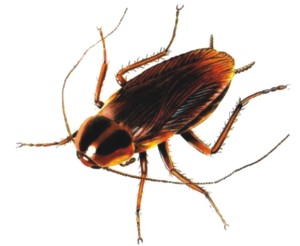Feature
Creativity and Entrepreneurship
Sameera Islam
THE innovations and technological advancement of today enable us to communicate with the people around the world and access almost everything that we need to know in a matter of seconds. But have we ever tried to understand what our next step should be to exist in this competitive world?
On July 16, I attended a seminar on 'Intellectual and technical creativity', conducted by Professor Nawaz Sharif, who explained the importance of entrepreneurship. Yes, the world is getting really smaller, and though we are a developing country, we can access every opportunity that are there. But what is the reason that there are developed countries but we are not? Professor Sharif explained that we have to acquire more entrepreneurship skills like the people in the developed countries did, which should be our next step to compete in this competitive world.
In the face of extreme challenges, where every resources have already been used in some way or the other for our progress, only new ideas or remoulding of old ideas can make the world sustainable, and entrepreneurs are the people who can turn this concept into reality. So now it is our turn to become entrepreneurs through acquiring knowledge.
So, how can we inculcate our creativity technically or intellectually? Countries like ours, who don't have many natural resources, like the European countries or China have therefore we have to use our intellectual skill and resource. China is also using the intellectual skill of its huge labour force. We have the time to think about our future that where we shall stand after 50 years. We have to take the initiative to become creative entrepreneurs.
True, we are leading in the markets of readymade garments and knitwear. But how long can we do that and how much profit can we earn from that? Many western buyers are looking for manufacturers in African poor countries.
I am very fortunate to study in BRAC University because it is offering us a course on Entrepreneurship to enhance our idea that how in a calculated way we can be successful as an entrepreneur and take risks. Many entrepreneurs had taken initiative in our country and became successful. As most of the students of Bangladesh are now studying Business Administration in their higher education so if every university introduces this subject, then we can hope to find many successful future leaders to take Bangladesh forward.
(Student of BRAC University)
Will Cockroaches Inherit the Earth?
Daniel Riley
 THE cockroach survival myth seems to have originated with the development of the atom bomb. In The Cockroach Papers: A Compendium of History and Lore, journalist Richard Schweid notes that roaches were reported to have survived the blasts at Hiroshima and Nagasaki, leading some to believe that they would inherit the Earth after a nuclear war. This idea spread during the 1960s, in part due to its dissemination by anti-nuclear activists. THE cockroach survival myth seems to have originated with the development of the atom bomb. In The Cockroach Papers: A Compendium of History and Lore, journalist Richard Schweid notes that roaches were reported to have survived the blasts at Hiroshima and Nagasaki, leading some to believe that they would inherit the Earth after a nuclear war. This idea spread during the 1960s, in part due to its dissemination by anti-nuclear activists.
At least there is a modest scientific basis for the myth: Cockroaches are more resistant to radiation than humans and nearly all other non-insect animals. This is because they are relatively simple organisms with fewer genes that might develop mutations. Roach cells also divide more slowly than human cells, giving them more time to fix problems caused by radiation. Whereas a person will certainly die from a radiation dose of 1,000 rads, cockroaches can withstand more than 10 times that amount.
Studies over the last half-decade have found that while other insects are more likely to reign in the age after humans, the cockroach might, in fact, be one of the first bugs to go. More recently, the television show MythBusters tested the effects of radiation on several kinds of insects and discovered that tiny flour beetles were the hardiest. Organisms that aren't classified as animals are even better-equipped to handle a nuclear fallout. Certain bacteria, protozoa, mosses, and algae might thrive long after roaches and flour beetles bite the dust.
In any case, the cockroach is a proven survivor. Most researchers believe the roach's fossil record dates back to approximately 300 million B.C., a period predating dinosaurs by nearly 70 million years. Additionally, the roach knows how to get by during tough times: It can survive on dead or decaying organic matter and can even live without its head for more than a month
Source : slate.com
| 